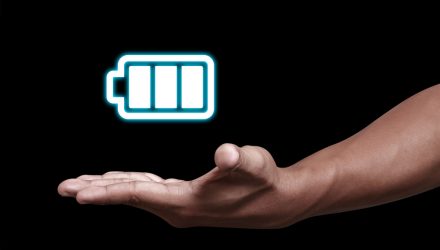The latest breakthroughs in artificial intelligence could have consumers and investors alike all charged up–literally. Advanced testing in the battery sector is utilizing artificial intelligence to find ways to improve recharging rates without increasing the degradation of lithium-ion batteries.
Per a Green Tech Media report, researchers “wrote a program that predicted how batteries would respond to different charging approaches and was able to cut the testing process from almost two years to 16 days, Stanford reported. The technique was used to evaluate 224 possible high-cycle-life charging processes in just over two weeks, the researchers said.”
“The standard way to test new battery designs is to charge and discharge the cells until they die,” said Peter Attia of Tesla and part of the aforementioned team from Stanford University, the Massachusetts Institute of Technology and the Toyota Research Institute, who published findings from battery testing with the goal of cutting electric-vehicle charging times down to 10 minutes. “Since batteries have a long lifetime, this process can take many months and even years. It’s an expensive bottleneck in battery research.”
US Battery Manufacturing Shipments data by YCharts
One ETF to consider is the ARK Innovation ETF (NYSEArca: ARKK). ARKK is an actively-managed fund that invests in domestic and foreign equity securities of companies that are relevant to the fund’s investment theme of disruptive innovation.
Another fund to consider is the Robo Global Healthcare Technology and Innovation ETF (HTEC). HTEC seeks to provide investment results that, before fees and expenses, correspond generally to the price and yield performance of the ROBO Global Healthcare Technology and Innovation Index.
The fund will normally invest at least 80 percent of its total assets in securities of the index or in depositary receipts representing securities of the index. The index is designed to measure the performance of companies that have a portion of their business and revenue derived from the field of healthcare technology, and the potential to grow within this space through innovation and market adoption of such companies, products and services.
One fund to watch that might be affected is the Global X Lithium & Battery Tech ETF (NYSEArca: LIT). Lithium-ion battery capacity is vital because one of the primary factors car buyers consider when evaluating electric vehicles is how long those vehicles can run on a single charge.
“Charging time is usually the fourth concern that people raise when considering to go electric or not, after upfront cost, range of the vehicle and where [to]charge,” said Aaron Fishbone, director of communications at GreenWay, which operates a fast-charging network across Eastern Europe. “So, while not a top-tier issue, it’s still one raised by many people.”
For more market trends, visit ETF Trends.


